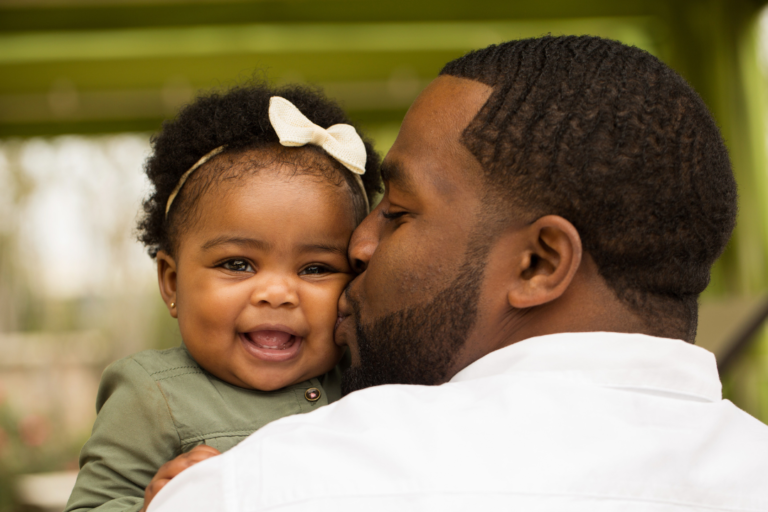Baby day-night sleep reversal, also known as day-night confusion, is a common in infants during their early weeks of life. You would think that after carrying your baby for 9 months and delivering them safely into the world, you’d be let off the hook to meet the demands of motherhood in a calm and well-rested state. But your newborn may have a very different idea – keeping you awake at night, whilst they rest peacefully during the day.
As an OT and mum of three, I know that every baby is unique. And that even within a family, siblings can have very different sleeping patterns from early on. But day-night sleep reversal is something that many parents will grapple with in the early days. Fortunately understanding what baby day-night sleep reversal is and why it happens goes a long way in helping you manage it effectively.
What Causes Baby Day-Night Sleep Reversal and How to Identify It
Baby day-night sleep reversal is when a newborn’s sleep patterns are disoriented, causing them to be more awake and active at night and sleepy during the day. This is because your baby’s internal biological clock, which regulates their sleep-wake cycles, is still very immature straight after birth. In the womb, babies are shielded from external light, and their sleep is largely driven by the mother’s movements and activities. You may have experienced this in the last weeks of your pregnancy. Your baby would be still while you were walking or moving around but then kick and tumble when you went to bed. After birth, lots of babies keep up this habit because the sudden exposure to the outside world’s light and darkness triggers confusion within the baby’s internal clock, leading to this reversal.
Identifying baby day-night sleep reversal can be challenging, especially for sleep-deprived parents. However, there are some key signs to look out for:
- Infants may seem more alert and fussy at night, showing a greater desire to feed and interact.
- Long, frequent daytime naps with brief periods of wakefulness.
If your baby is showing these signs, it’s likely that they are experiencing day-night sleep reversal. Keep reading for what to do about it.
The Impact of Baby Day-Night Sleep Reversal on Parental Sleep Patterns
By now, you probably know all too well that the impact of baby day-night sleep reversal on parental sleep patterns is profound and exhausting. Disrupted sleep schedules and sleep deprivation are bound to happen when your baby is more awake and active at night and you need to attend to their needs, such as feeding, changing, or soothing, multiple times.
Fragmented and inadequate sleep can result in feelings of exhaustion, irritability, and difficulty concentrating during the day. We know that prolonged sleep disruption can take a toll on your physical and emotional well-being. And while this too shall pass, it’s a good idea to seek support. Open communication between you and your partner so you can share responsibilities and take turns getting up for the baby at night. If that’s not possible, enlist the help of family members or hire a night nurse a few times a week. Don’t feel like you need to suffer in silence. Even help for a night or two can provide much-needed relief and help you cope with the demands of parenting and everyday life.
Expert Strategies for Establishing Healthy Sleep Patterns in Babies
Fortunately, rectifying baby day-night sleep reversal is possible. You can encourage natural circadian rhythm development by implementing a few important strategies.
Daytime Strategies
You want to help your baby learn that daytime is the time for interaction. Your goal over the next few weeks is to ensure that your baby gets 80% of their nutrition in daylight hours.
Here’s how you can do this:
- Wake your baby for the day by 8am at the latest. Ensure the first waking in daylight hours is met with engaging interaction and some stimulation, so your baby knows its appropriate to be awake.
- Make sure your baby feeds at least three to four hourly during the day. If they’re still sleeping and its been three and a half hours since the last feed began, wake them up so that they feed before a four hour stretch passes.
- Expose your baby to natural daylight. Sunlight helps babies to sleep well at night – just be sure its not direct light and your baby can get sunburnt.
- Establish a consistent bedtime routine starting with bath time between 5 and 6pm. A warm, quiet bath followed by a massage can help to create the association that night time is coming.
- After bath time, continue with the calm, quietness. Don’t engage in play or stimulation. Keep your baby in their room, dim the lights if necessary, before feeding and swaddling them in the dark. Don’t burp your baby for long either before you settle them to sleep. Do this consistently for a few weeks to reinforce a healthy sleep pattern.
Night time Strategies
The goal with this strategy is to help your little one realise that night time is boring and it’s not worth being awake. Initially, your baby may feed as frequently as they do during the day but you are aiming for only 2 night feeds and straight back to sleep after.
Here’s how to implement an effective night time strategy:
- Keep interactions at night very quiet and subdued – do not even change their nappy if it is not soiled.
- Keep the room dark for feeds, using a dim night-light or leave the passage light on.
- Don’t wake your baby to feed at night unless your doctor has instructed you to do so.
- Do not talk to your baby or burp them for longer than 5 minutes after a night feed. Most babies manage best if they are resettled in the dark straight after a feed.
Creating a Sleep-Friendly Environment for Babies to Overcome Day-Night Reversal
Creating a sleep-friendly environment is crucial for helping babies overcome day-night reversal and establish healthy sleep patterns. A baby’s sleep space should be consistent, calming and safe. Pay attention to things like:
Lighting
Regulate light exposure. Ideally, you want a space that gets natural daylight but use block out blinds or curtains to create darkness in the evenings and night time. Use a dimmable light or night light for night feeds or if you have to change a nappy.
Temperature
Your baby’s room should be no warmer than 22 C (71 F). You should aim for ‘neutral warmth.’
Quiet
Some noise is normal but don’t expose your baby to loud television programs or music before sleep. I’m also a big advocate of a white noise machine to help babies fall asleep.
Find out more about creating a soothing sleep space for your baby here.
Proven Techniques to Help Babies Adjust to a Consistent Sleep Schedule
Helping babies adjust to a consistent sleep schedule is essential for their overall well-being and helping you get some much-needed rest. In addition to the step-by-step strategies we discussed above, there are some proven techniques can encourage the transition to a regular sleep routine.
The first is to follow baby awake times. This is a scientific method of calculating the time your baby can be awake before needing to be settled again for a sleep. It’s based on age and useful throughout infancy but crucial for preventing overstimulation and overtiredness in a newborn.
Encouraging daytime naps is equally important. Although it may seem counterintuitive, ensuring that the baby gets enough daytime sleep can actually lead to better nighttime sleep. Overtired babies may have more difficulty settling down and may wake up more frequently during the night.
As babies age, introducing a consistent wake-up time in the morning can help establish a regular sleep pattern. I’ve developed an app to help you track your baby’s sleep patterns. Download Parent Sense for a easy to use Responsive Routine and weekly sleep tips to have more restful nights for both the baby and the entire family.
Remember to be be patient and understanding throughout the adjustment process. It can take some time for your baby to adapt to the new sleep schedule, and setbacks are common. Just be sure to respond consistently to their needs and offering soothing comfort when they need it and this too shall pass!




